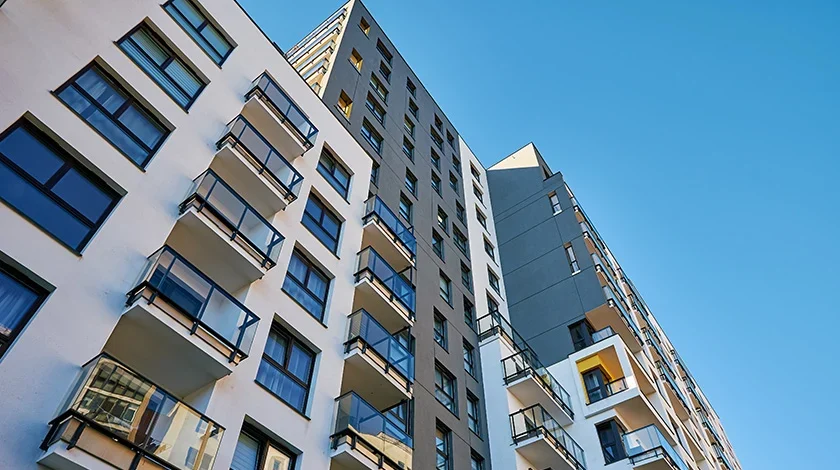In April 2024 the Treasury released draft legislation implementing the ‘Build-to-Rent’ (BTR) tax concessions, which were first announced in the 2023-24 Federal Budget. These concessions aim to encourage investment and construction in the BTR sector by increasing the rate for capital works tax deductions available to developers, and reducing the final withholding tax rate on eligible fund payments from managed investment trust (MIT) investments.
Background to Build-to-Rent in Australia
BTR developments are multi-unit buildings where the units are built to be immediately rented out, instead of sold as individual units to buyers. Whilst already an established practice in America and the United Kingdom, BTR development is still very much in its infancy in Australia.
In the 2023-24 Budget, as part of its push to encourage more investment into housing, the Federal Government announced plans to make BTR projects more affordable for developers. This follows Census data from 2011, 2016 and 2021 which shows a long-term trend of Australians renting instead of owning their home, increasing the need for more available rental housing.
Following recent highly publicised issues with the safety of apartment buildings, such as the Opal Tower in Sydney, and Grenfell Tower in the UK, BTR developments have also gained support because it gives developers a greater incentive to build long-term structurally sound buildings, as they continue to own and manage the building moving forward.
Concessions for Build-to-Rent developments
Division 43 of the Income Tax Assessment Act currently allows a 2.5% deduction for capital expenditure incurred in constructing income producing buildings. This would be increased to 4% for eligible BTR developments.
Currently, when an MIT or AMIT (attribution managed investment trust) derives income from an active BTR development, the income is subject to a final withholding tax on a foreign resident of 30%. This would be reduced to a 15% concessional rate for MIT’s or AMIT’s investing in eligible BTR developments.
Requirements for Build-to-Rent developments
To be eligible for these concessions, the BTR development must have commenced after 7:30pm on 9 May 2023. The following criteria must be met:
- Consist of 50 or more resident dwellings made available for rent to the general public;
- All dwellings in the development, plus common areas, must continue to be owned together by a single entity for at least 15 years. The BTR developer is entitled to sell the development to another single entity within that 15-year period;
- All dwellings must be offered for a minimum of a three-year lease, although a tenant can request a shorter period; and,
- At least 10% of the dwellings must be made available as affordable tenancies.
It is also essential that BTR developments remain continuously active for the entire 15-year period. If a developer has claimed a BTR tax concession for a particular year and then at a later point during the 15-year period they become ineligible as they no longer meet the BTR concession requirements, the tax benefit will be ‘neutralised’.
Breaches during 15-year period
If an active BTR development ceases to be active during the 15-year compliance period, then the development is treated as having been subject to the 2.5% deduction rate for the time it had previously been eligible for the 4% deduction rate. This ensures that the BTR development is depreciated over 40 years instead of 25 years.
Any concessions claimed after a BTR development ceases to be active can be neutralised by the Commissioner amending those incorrect assessments. This is regardless of how long ago they were lodged.
Build-to-Rent misuse tax
The newly inserted Division 44 of the Income Tax Assessment Act will introduce a BTR development misuse tax where a development ceases to be active during the 15-year compliance period.
The misuse amount is the sum of an entity’s BTR capital works deduction amounts and their BTR withholding amounts. The amount is subject to a 1.5% tax rate, with the total amount of tax roughly equal to the tax benefit gained, which is then increased by 8% to represent interest and costs associated with the tax shortfall.
The BTR misuse tax is due and payable 21 days after you receive a notice of assessment of that tax from the Commissioner.
Reporting requirements
A participating BTR developing entity is required to notify the Commissioner within 28 days when any of the following happens:
- The BTR development commences being an active BTR development;
- Any expansion of an active BTR development during the minimum period of ownership / operation takes place;
- A change of the direct ownership interest in an active BTR development occurs; or
- A BTR development ceases to be active.
Affordable tenancies
As part of the BTR tax concessions, the Federal Government has committed to a minimum of 10% of the dwellings in a BTR development being categorised as affordable dwellings. This means that the owner of the BTR development must offer those dwellings to tenants at a discounted rent of 74.9% or less of the rent payable on a dwelling of an equivalent size and standard located in the same building.
The released by the government has also welcomed consultation on applying income limits for tenants who are eligible to apply for the affordable tenancies.
The proposed limits are:
| Household composition | Income limit (% of annualised average weekly total earnings) | Income limit ($ based on November 2023 data) |
| Single adult | 120% | $122,179 |
| Couple, no dependant | 130% | $132,361 |
| Family, one or more adults with one or more dependants | 140% | $142,542 |
Takeaways
As housing shortages and affordability continues to be a hot-button issue for the Federal Government, there are a number of measures being announced which are aimed at alleviating these pressures. The draft legislation for the BTR tax concessions presents an exciting opportunity for developers and investors to capitalise on this, by accessing greater concessions and reduced withholding tax rates for their involvement in eligible BTR developments.
For more information on Build-to-Rent tax concessions and eligibility, please contact Coleman Greig’s Taxation Law team














